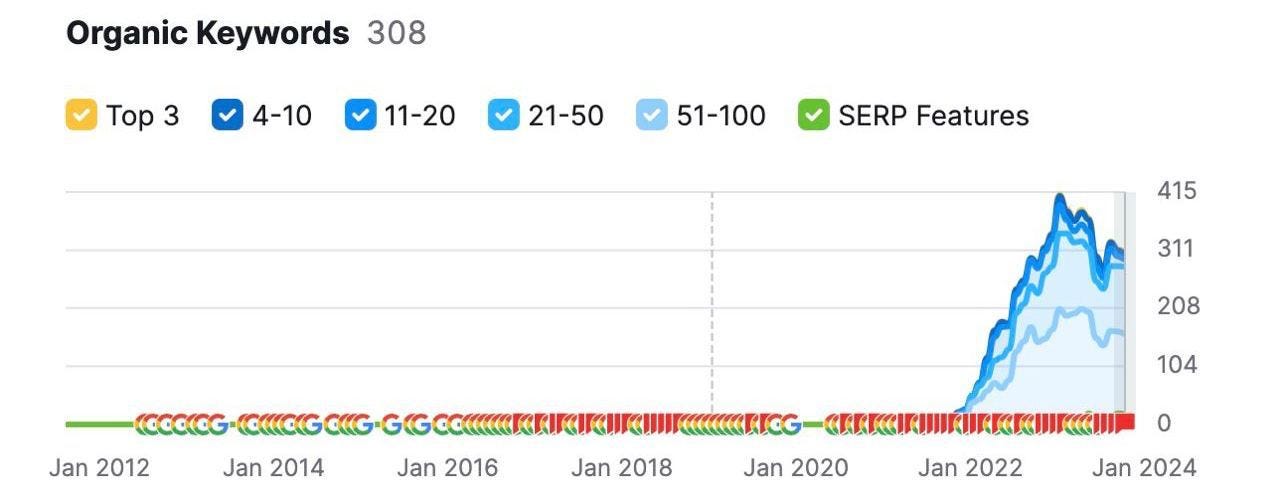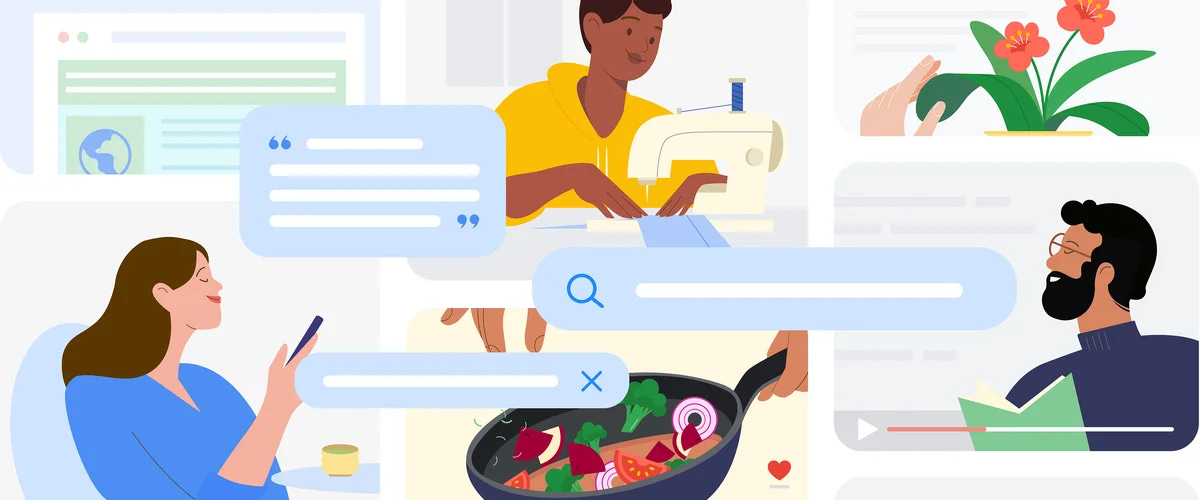Google VS AI SEO: How To Use AI for SEO in 2024
Creators Cases, New Google AI Rules and How To Survive Them With AI!
👋 Hey, I’m Stepan and welcome to a ✨ subscriber-only edition ✨ of Creators’ AI. By subscribing, you directly support Creators' AI's mission to deliver top AI insights & practical knowledge without ads or clutter. Your subscription allows us to grow our dedicated team and curate the most important AI Tools, Stories, and Tutorials in one place. - Stepan
Intro
Things are taking a serious turn: Google has declared war on generated and low-quality SEO content. Starting May 5, the search engine will receive more updates, after which the company will be much stricter in responding to user queries. And that scares a lot of creators who are using AI tools.
But is it all that bad? Today, I'm going to take you on a roller coaster ride. First, we'll look at successful cases where AI was used for SEO. Then, we'll explore Google's new rules and their dangers. Finally, we'll look at solutions and tools that are still relevant.
So, in this newsletter:
- Impressive Cases for AI SEO (How good it used to be)
- How Google Will Fight Algorithms (What will happen now)
- Relevant AI for SEO Optimization (How we should proceed in the future)
Let's begin!
🔗 Are you already subscribed and want to ensure you don’t miss our newsletters? Move our newsletter from “Promotions” to “Primary” in your inbox! (video instructions below)
Real Cases
Ironically, to discuss what the future holds, I suggest we talk a bit about the past: literally, about the past couple of months. Let's start with an overview of cases where AI Tools enabled viral content generation for search engines and supported creators on the road to success.
AI helped build a platform with 45,000 monthly visitors
Our first case study is Jacky Chou (who may also be known as Indexsy on Twitter). Jacky is an entrepreneur who runs a marketing and newsletter business. A couple of years ago, he used a proprietary GPT-3 model to build a website from scratch and attract 45K unique visitors.
He found 1,000 keywords on a topic with low competition, applied AI Tools to create SEO-optimized content, and achieved the desired results. As he later shared on his Twitter page, along with these projects, his income grew to $320K in four months of work!
Here are the takeaways from Jacky's case study:
Find keywords with low competition and high traffic volume
Constantly track and measure your results
Don't misuse AI to create posts (Jacky relies on real writers using AI for his work)
If you want to learn more about Jacky, listen to his podcast here:
Keep your mailbox updated with practical knowledge & key news from the AI industry!
Side hustle with AI turned into an agency with 5-figure revenue
The second case concerns the social marketing agency LaurenLabeled. Founders Lauren Mabra and Lauren Ferry are 25-year-olds who help other creators and brands grow their social media projects. In less than three years, they turned their part-time job into a full-fledged business and became popular creators with TikTok Shop.
LaurenLabeled relies on the popular Alli AI platform for its work. This service applies AI to optimize, automate, deploy, and scale SEO. Technically, these tools take care of all the promotion tasks. As practice shows, this approach works well for those projects that don't have the ability to hire a team of marketing and SMM specialists.
Here's what the founders say about using AI for SEO optimization:
There's simply no faster way to optimize a website. We've gone from taking months to get tasks done manually to seeing the changes live instantly. Alli AI automates thousands of hours of manual work in minutes, and you can do it all from one dashboard without having to learn and train staff for different CMS for every client
The websites of Mabra and Ferry show stable organic traffic growth due to high keyword content and optimization. At the same time, the agency practically does not use services to attract paid traffic. The AIs do this work on their own.
What conclusions we can draw from the LaurenLabeled case study:
AI SEO tools help establish website promotion without additional burden on the team.
Automated platforms analyze vast amounts of search data, identifying trends, which means it's easy to find what your audience is interested in.
Attracting traffic allows you to convert visits into personal brand development.
Mabra and Ferry revealed more about their agency and how it's set up in interviews for Forbes and BI.
Want to learn about AI-Powered SEO Growth-Hacks? Follow this newsletter:
Google New Rules
First, it is worth noting that Google has stated before that it is strict about the content in the search engine. Regarding AI, the company claimed that quality should be paramount and urged users not to abuse tools that automate the work. However, the search engine could still "clog" answers with meaningless and misleading links.
The update deals with two aspects:
Improved quality ranking: Google wants to make algorithmic enhancements to core ranking systems to ensure the most helpful information on the web and reduce unoriginal content in search results.
New and improved spam policies: The company is heavily updating its anti-spam rules to eliminate low-quality content from Search, like expired sites that new owners have repurposed as spam repositories and obituary spam.
Sharing is caring! Refer someone who started a learning Journey in AI!
Interestingly, Google's blog doesn't mention "artificial intelligence" or "AI." However, the company attributes the impact this new technology is having on the Internet to the fact that methods of creating scalable content often use "automation." Such content will now enjoy less success in search engine rankings.
What else you should know:
Google is tightening its policy on those who create a lot of content. This rule applies to both generated posts and those created by humans.
Google hints to us that it's time to move from quantity to quality. So in the near future, creators should shift their focus to maximizing relevant and original content for users.
Sites that produce quality content themselves but place spammy and garbage articles as ads will rank worse.
Now we have to watch out not only for our own content, but also for content from partners and clients. Choose your friends carefully!
Expired domains that are purchased and repurposed to boost the search rankings of low-quality content are now considered spam.
Since expired domains are often purchased and repurposed into low-quality platforms, the role of your website name is now especially important. Now is the time to pay attention to naming!
Google estimates that this update and previous efforts will reduce low-quality and unoriginal content by 40%. That's an impressive figure that suggests the new rules will affect a large number of creators. And it's all set to go live on May 5 this year.
So what's next?
Will Google really kill projects that rely heavily on AI-driven SEO automation and optimization? Well, yes and no. The changes don't prohibit you from using AI and automation, and Google won't purposely undervalue the power of generated content. However, methods like "generating 10,000 posts for your website in 2 hours" may suffer.
To avoid this, we recommend using the Pragmatism + Human + AI approach (as well as the tools we cover below). This will allow you to avoid problems with... Well, the most popular search engine in the world! Let's figure out what we should use.









